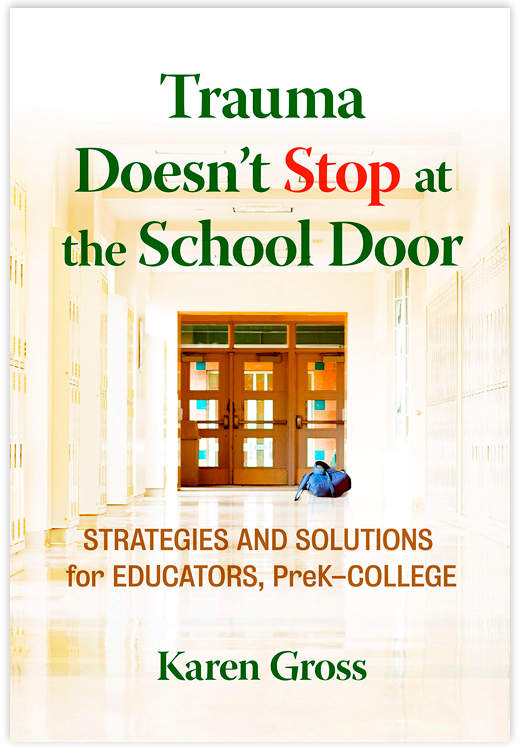Author
Educator
My work is focused on solutions to help students, educators, administrators and community members and their organizations/institutions thrive, not just survive.

My work is focused on solutions to help students, educators, administrators and community members and their organizations/institutions thrive, not just survive.

I have been privileged over the years to get wonderful reviews of my adult and children’s books. (Yes, there were a few really nasty ones for a book released in 1997 — and there is one reviewer with whom I have simply agreed to disagree.) Reviews are often general and not personal to the reviewer (ie. devoid of personal reviewer stories). Some are short and some are longer; some are detailed and some reference specific sections of the books or note particular qualities (say the art in the children’s books).

I recently received a review of my newest adult book from Dr. Will Wootton. He is an author and educator and was the President of Sterling College in Vermont when I was the president of Southern Vermont College. He now consults with educational institutions.
Over the years since we both left office (on good terms with our institutions and each other), we have conversed about various issues in education. We have spoken about the challenges facing higher education, which are (sadly) plentiful. Also, I have read his excellent book on small colleges and overcoming their challenges.
It is in this context that I gave Will a copy of my most recent book, Trauma Doesn’t Stop at the School Door, released by Teachers College Press in June 2020. And it is, given the state of our educational and larger world, a book for our time.
Rather than saying any more about Will’s review, I provide it here. Other than minor edits for clarification and the like, it is presented here as written by Will. It is the kind of review that gives meaning to writing of a book in the first instance. Writing a book, as others may know or hypothesize, is a tough thing to do.
Reviews like this, particularly at times like this, give an author enormous sense of both pride and relief — and a pathway forward to continuing the work of writing, especially about a topic like trauma. And, perhaps, too, Will’s review will encourage others to read and use the book for the benefit of all our students and educators. If ever there were a time to be a trauma responsive institution, it is now.
Review by Will Wootton (italics added):
My single comprehensive impression, carried through the entire book, was how I wish I’d read something like this many, many years ago. I would have been a better high school teacher, a better teacher of dyslexic students (my specialty), and a more attentive college administrator. My ignorance of even the fundamentals of trauma was profound, based on nothing really other than a vaguely macho tolerance for disruption and unpredictability, and a defensive philosophy that nothing people do should surprise me.
Very effective to me were your personal stories of trauma, linking the clinical profiles and science to testimony. Which made me recall a minor but very clear demonstration of trauma in my own adult life: driving down an unfamiliar four lane city road, a car suddenly pulled directly in front of me and I hit it. No one was hurt. The other driver, a woman, was hysterical. I calmed her down. The front of my car was banged up, and the driver’s door crunched closed. Turned out she had seen a friend in the parking lot and just turned in without looking, meeting me. The police came. Everything was fine. I made my appointment; it was a fundraising trip.
However, hours later as I started driving back to Vermont I discovered I was reacting to every approaching car on every road without a central divider. I’d tense up, pull to the right, and once even stopped to catch my breath and berate myself thinking, this is ridiculous. This went on for weeks, and was very annoying. Eventually, it faded. But I had discovered I could not simply will away this obvious trauma. I could not dismiss it. But I could forget about it, until I read your book and recognized what had happened.
On a professional level, thinking back to the years your book would have been a genuinely applicable tool for me, I would have been considerably more aware not only of various levels of trauma among individual students, but within the faculty and staff as well. It would have added an important level of nuance and understanding to whatever insightfulness and empathy I managed to employ. I think of this most pointedly in recalling Sterling’s five military vets, the single Marine having served two deployments, both involving heavy combat. It’s a longer story, but as I read your book I realized things about him that I had not seen — could not have seen — before. He left the College eventually, but kept in some contact for a while.
This is a big book in a small box. You’ve taken a huge subject, potentially unwieldy, and rendered it sequential, detailed, authoritative, and by example and illustration borderline entertaining. I can’t see how it could be any better.
And I want to add for the generalist that this book has a broader application than schools and teachers. It’s helpful especially now within a pandemic, with a disruptive national government, an unsettled society, students at home, parents at home…to have some better understanding of the nuances, pervasiveness, and levels of trauma that affect everyday life and everyday people.
My thanks to Will and to all those who read this and see value in Trauma Doesn’t Stop at the School Door.